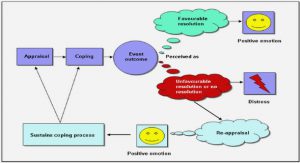Get Complete Project Material File(s) Now! »
Benefits of Using Social Network Sites for Research Purpose
The advantages of using social networking sites such as knowledge and information sharing, learning, collaboration, reductions of distances from movement etc. actually reflected on each based on their in-tentions. But this turn another page of what the scenario/situation of those who are not researcher or professional like students, lay citizens etc. and how does one envision their participations. This strikes a point toward many non-researchers as to why they do not belong and know so much about research so-cial networking sites. At the same time, considering sensitive issues on the part of researchers on whom to trust and which sites meet up to their standard.
From a researcher
“Well, it depends. Patients can get help from specialists; students can get advice from researchers. But if a person has no background in the area of the research network it can be difficult for the person to understand what is going on in this area, that is to really participate in a social network for research purpose can be difficult. However, researcher can get interestin hints and ideas from ordinary citizens, that is researchers may learn what is really important for the society (not only what is important for writing publications).”
From Epernicus and Medpedia the observed social networking sites, goes respectively:
« A wise man can learn more from a foolish question than a fool can learn from a wise answer ».
“Professional groups think, express and speak professionally from a professional set. However, this view may be less valua-ble than to have input by the very ones that the professionals serve but it is important to have lay person´s input. So, if it comes to integrating ordinary citizens into professional networks, I would say it would be to the networks advantage, as no one can boast of fully informed, but may lower the involvement and interest of various researchers”
Shortcoming and Sensitive Issues about Social Network Sites
This reflects on issues like who to trust, confidentiality, security, standards of the network, benefits of sites and others which portray some shortcomings and motivations towards collaborations and at the same time, rendering the development of research collaboration via social networking sites a bit difficult. Despite the shortcoming, some of the researchers and professional are still willing to share information in order to spread useful knowledge and learning for a better research. In addition, those sensitive issues mentioned earlier still pose a barrier or shortcoming to collaboration for research on social networking sites. For further explanation of people´s responses regarding those sensitive issues, see the table below of the interview conducted for further clarifications.
Observations of Social Network Sites for Research Collabora-tion
Social networking sites could be for specific networks or purpose such as for entertainment (YouTube), business (LinkedIn), leisure (Facebook), collaboration and so on. Based on our observation of different research social networking sites, we came across currently used social networking sites for research net-works such as Medpedia , Mendeley, ResearchGate and Epernicus. The authors participated on three of these social networking websites mainly for research and collaboration, namely Medpedia, Mendeley, and Epernicus to see how they function in terms of how people collaborate. Below are the descriptions, functionality and uses of the observed social networking sites for research purpose and collaboration.
1 Introduction
1.1 Background .
1.2 Problem Discussion
1.3 Purpose .
1.4 Research Questions
1.5 Delimitation
1.6 Definition of Terms .
1.7 Outline of the Thesis
2 Frame of Reference
2.1 Choice of Theory
2.2 Social Capital .
2.2.1 Trust, Knowledge Sharing, Shared Norms and Citizenship .
2.2.1.1 Trust 11
2.2.1.2 Knowledge Sharing
2.2.1.3 Shared Norm
2.2.1.4 Citizenship
2.3 Levels of Social Capital
2.4 Dimension of social Capital: Relational, Structural and Cognitive
2.4.1 Relational Dimension/Approach
2.4.2 Structural Dimension/Approach
2.4.3 Cognitive Dimension/Approach
2.5 Bonding and Bridging Social Capita
2.6 Potential Benefits and Disadvantage with Social Capital
2.6.1 Benefits
2.6.2 Limitations
3 Methodology
3.1 Research Approach
3.1.1 Research Design
3.1.2 Research Method/Strategy
3.2 Data Collection
3.2.1 Quantitative Metho
3.2.2 Qualitative Method.
3.3 Data Sources
3.3.1 Secondary Data
3.3.2 Primary Data
3.3.3 Questionnaire
3.3.4 Interview
3.3.5 Observation
3.4 Analysis of Data
3.4.1 Interview Analysi
3.4.2 Questionnaire Analysis
3.4.3 Observation Analysis
3.5 Credibility
3.6 Reliability
3.7 Validity
4 Result of Empirical Findings
4.1 Awareness of Social Networking Sites for Research Purpos
4.1.1 Empirical Data (Questionnaire)
4.1.2 Empirical Data (Interview)
4.2 Research Collaboration through Social Network Sites
4.2.1 Empirical Data on Collaboration (Questionnaire)
4.2.2 Empirical Data on Collaboration (Interview) .
4.3 Activities and Purpose of using Social Networking Sites for Research Collaboration
Empirical Data on Using SNSs for Research (Questionnaire).
4.3.1 Benefits of Using Social Network Sites for Research Purpose
4.3.2 Shortcoming and Sensitive Issues about Social Network Sites
4.4 Observations of Social Network Sites for Research Collaboration
4.4.1 Medpedia
4.4.2 Mendeley
4.4.3 Epernicus
5 Analysis
5.1 Benefits and Challenges of involving Ordinary Citizens in Research-Improvement Dialogue.
5.1.1 RQ1: What are the benefits and Challenges of involving ordinary citizens in research-improvement dialogue?
5.1.2 Benefits of Involving Ordinary Citizen in Research Collaboration
5.1.3 Challenges of Involving Ordinary Citizen in Research-Improvement di alogue
5.2 Impact of strong and Weak Ties
5.2.1 RQ2: How can Social Networks help?
6 Conclusion
7 Discussio
7.1 Final Disscusion and Reflection
7.2 Criticism of the Study
7.3 Suggestion to Project Team
7.4 Further Research
References
GET THE COMPLETE PROJECT
Improving Researcher-Patient Collaboration through Social Network Websites




